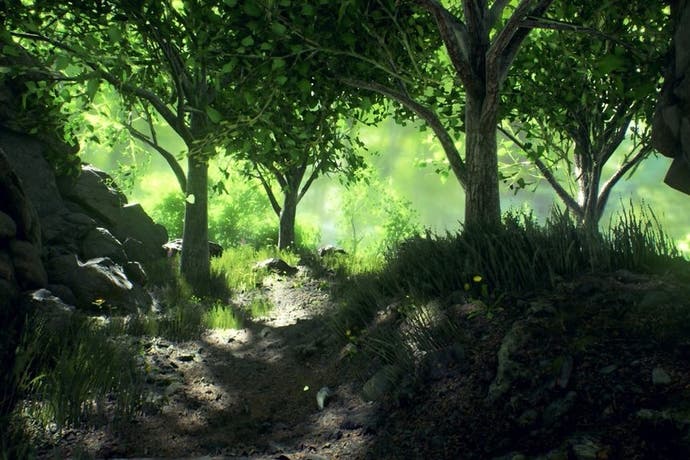Asemblance is a fresh spin on memory and narrative from some ex-Bungie devs
Universisty challenge.
For some reason, we're watching Quantico in my house. It's a drama about terrorists and the FBI. Have you seen it? It's not terrible, but it's not great, either. In fact, Quantico is barely anything at all. Something in a recent episode made my wife sit up pretty sharply, however, and then grab the remote, rewind and pause. It wasn't a plot twist or a pithy line of dialogue, because this is Quantico we're talking about. No, it was a diploma on the wall of an office belonging to one of the main characters. A diploma proudly announcing that he had graduated from the "Universisty of Kentucky". That must have been nice! Everybody's better off with a degree from a good universisty!
I love little mistakes like this. In fact, I like to think that, in the Quantico universe - a universe that's very similar to ours, except largely filmed on the cheap in Canada - everyone goes to universisties these days. I also love it at the start of Asemblance when the text tells me to watch for the save icon when it's displayed "in the lower right corver" of the screen. With Asemblance, though, I'm less willing to write that up as a mistake. I'm starting to see meaning everywhere in Asemblance. Well, not meaning, necessarily, because I haven't untangled much yet, but definitely intent.
Asemblance is fascinating, a story-driven game from a small team that includes Bungie, Monolith and Visceral veterans, and that sees you exploring the memories of a mysterious protagonist who spends their time screwing around on a Holodeck run by an AI who seems to have modelled himself on Hal from 2001. It's part of a mini-trend that makes me rather excited: games in which budgetary limitations have forced designers to do really interesting things with the shapes of the stories they're trying to tell. HerStory, for example, chopped its central mystery into pieces and forced you into a game of Semantic Battleships - or maybe it was Syntactical Battleships. Asemblance sees you moving through a handful of memories as you try to create new connections between them, by studying different details, say, or uncovering fresh scraps of information.
It's an attempt, I think, to mimic the way that memory works in your own brain - the way it corrupts and settles, events sometimes collapsing into new alignments and making you reconsider your own experiences. It's fascinating to prod a path through Asemblance, reach a conclusion, and then head back in again, moving through the same spaces but with a different overall order in mind, learning more about the overarching narrative each time. And, because these are games we're talking about, there's even a nice piece of meta-pathfinding in place as you sound out every corner of the storyspace until you've found the lot. Very Stanley Parable, which is an odd sentence, but there you go.
People have not yet found the lot, that's for sure. A quick glance at the Asemblance Steam discussions suggests there's one ending so far that seems to have eluded almost everyone. Asemblance, in other words, continues to unfold its secrets in real time. Leap in quick and you might find something the rest of us have missed.










